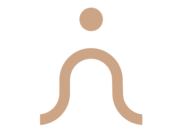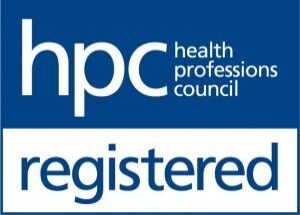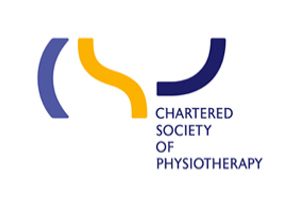
posted 25th July 2024
Physical and Mental Health: Understanding the Mind-Body Connection in Physiotherapy
INTRODUCTION:
Physical and mental health go hand in hand. You cannot treat one without the other. This blog will delve into the interconnections of the two and touch on some practical tips for success with rehabilitation.
No-one, no matter age or level of competition, is immune to injury or illness. It is common to experience uncertainty and low mood after a major physical setback. The uncertainty of healing can be the cause of tremendous stress. Coping with lifestyle changes and a loss of independence can be incredibly challenging. It is not uncommon to struggle with a sense of self and identity throughout your journey. Although difficult, it is important to remember this is normal. Your roles, abilities and routines are often disrupted, which can lead to isolation and loss.
GRIEF:
For many, going through the stages of grief can be an unexpected challenge during recovery..
Denial, even though logically you know you’ve entered a new relationship with your health, it is common to need time to deny the whole truth and tell yourself that “It is not that bad”. Coping may include ignoring pain, hiding symptoms and doubting yourself.
Anger, you may ask yourself why you waited so long to get support or lash out on others around you.
Depression, know that whatever you are going through, there is a community of people who have also been through it. Talk to your healthcare team if you are experiencing depression, they can direct you to Psychological services.
Negotiation, you may find you are asking yourself all the ways that the situation could have gone differently.
Acceptance, this may be of pain or how different your relationship with your body might be at this time.
GOALS:
It is recommended that throughout your journey, you set short-term and long-term SMART goals. This way, you are able to keep track of your progress. It will also help maintain motivation, it can be helpful during the lows and the highs. Don’t forget to celebrate the wins and try to keep a positive mindset. Remember that no rehabilitation programme has a linear recovery. There will be bad days and weeks but many more good days and weeks. Never forget that no matter how small, progress is still progress. Stay resilient and keep moving forwards.
NEW COPING STRATEGIES:
Many people never properly address mental health issues. Sports and exercise help some people cope with low mood and anxiety without ever realising it. It is important to find alternative mental health coping mechanisms when an injury prevents you from doing this. Engaging in activities such as a gratitude journal, reading an uplifting book and setting healing intentions can contribute to overall well-being. How you spend your new, free time may open a new, exciting chapter of your life and give you something to look forward to besides your physical goals.
SUPPORT:
Don’t neglect your relationships when nurturing a recovery. Letting others in takes courage but, will help combat loneliness. Talk to a health professional about support groups too, whether that is charity support or condition specific exercise groups, having a solid support structure around you is key. Sharing your own experiences can be a source of comfort and inspiration for others. Also, it is worth considering professional support, which is easy to access through: NHS talking therapies for anxiety and depression - NHS
RELAXATION:
There is a growing body of evidence for the use of mindfulness and relaxation. From breathing techniques, to progressive muscle relaxation, it’s like a spa day for the brain. Some approved apps we would recommend, include Headspace and Calm.
MINDSET:
Research shows that if you have a realistic, optimistic outlook “Recovery will be tough but I will get through it”, you’ll recovery more quickly and completely than if you have a negative outlook like “Why me? This is the end”. The body needs the mind to make the recovery and this cannot be neglected.
BASIC CARE:
Ensure that you do not solely focus on your physical recovery. You must control your attitude to your healing as well as self-care basics such as staying hydrated, eating nutritious meals and getting quality sleep. Maintaining a healthy weight is important during your rehabilitation programme, this can be difficult so it may be helpful to get support with this. Finally, try to reduce your alcohol intake, which can worsen mood.
FOCUS ON WHAT YOU CAN DO:
Work with your therapists to get creative with rehabilitation programme. For example, if you are recovering from a knee surgery and have goals to play basketball, it is easy to work on passing and shooting drills whilst seated.
VISUALISATION:
Use visualisation as a tool. Athletes routinely use visualisation to boost their performance and this applies to the rehabilitation period too. Rewatch yourself achieving the goal your aiming for, for example rewatch yourself playing sport or mentally rehearse yourself practicing the task you cannot currently do.
ROLE MODELS:
Everybody loves a good comeback story. Watching someone else go through a similar experience as you and rise from the ashes, can be truly inspiring. Follow tales of comeback stories and model their determination and both mental and physical resilience. But remember, for every moment of glory that is celebrated in front of the fan, there are countless hours of hard physical and mental work that has taken place behind the scenes.
HELPFUL RESOURCES:
Mental health and physical illness - Every Mind Matters - NHS
Calm - For Meditation and Sleep
Headspace - Meditation and Sleep made simple
CONDITIONS WE TREAT:
We understand that our clients often have a range of medical conditions. Our therapists have a broad range of backgrounds. For example, someone who has an physical injury, may also benefit from input from another health professional. Find a list of our approved partners here:
Booking an appointment
If you would like to find out more about Estuary Physios musculoskeletal service, please get in touch with us today and speak with one of our clinicians.
Medical Review
The information on this page has been reviewed for accuracy by Barry Ford BSc MCSP, Physiotherapist





